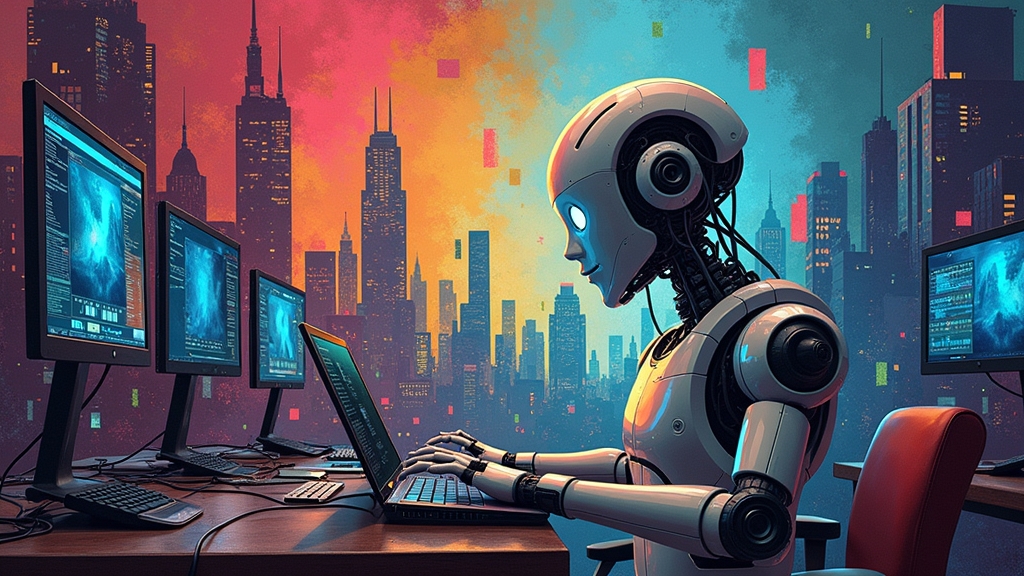Chinese Chatbot Causes Stock Market Meltdown; Billionaires Reassured They’re Still Smarter Than Everyone Else
Wall Street investors collectively lost their overpriced ergonomic chairs this week after China’s latest AI creation, DeepSeek, unveiled itself as both a technological marvel and a financial enigma. Developed on what tech pundits are now calling “a budget that wouldn’t even buy you a decent San Francisco studio apartment,” the chatbot has somehow managed to tank US tech stocks while simultaneously leaving Silicon Valley executives nervously clutching their Patagonia vests.
“Oh, it’s impressive for the price,” said OpenAI’s CEO Sam Altman, delivering what might be 2025’s most backhanded compliment. “Sure, it’s good now, but don’t worry, we’ve got something better coming soon. Any day now. Definitely not panicking at all.” Altman added that he found the claims of DeepSeek’s $6 million development cost “sketchy at best,” noting that AI innovation on a tight budget sounded “about as plausible as Elon Musk self-limiting his Twitter access.”
Speculation abounds about how DeepSeek achieves its apparent wizardry. Industry insiders suggest that it’s powered by off-brand Nvidia chips that were probably sitting in a warehouse gathering dust next to decades-old copies of Windows Vista. “They say these are older models, but, hey, vintage is in. Why overpay for cutting-edge tech when yesterday’s scraps get the job done?” quipped one analyst, between sips of a $25 oat milk latte.
Meanwhile, Nvidia may or may not be thrilled. On the one hand, its stockholders are face-planting into their $19 artisanal avocado toast as uncertainty swirls. On the other, there’s a faint chance this tech Frankenstein could revive demand for their lower-tier products. “It’s like finding out people are suddenly obsessed with your grandma’s rotary phone. Confusing, but profitable,” said one market observer.
Naturally, Wall Street went into full-blown hysteria mode, because if there’s one thing the stock market *doesn’t* do well, it’s having rational responses to anything involving technology. The Nasdaq briefly resembled a Black Friday sale, with traders shoving each other out of the way to dump shares in every company they couldn’t immediately identify as “not f#&$%ing doomed.”
“This is dotcom bubble deja vu,” grumbled a hedge fund manager who definitely did *not* short anything, no sir. “I mean, who’s to say this isn’t just some next-gen Tamagotchi hyped by Reddit bros? But also, if it is real, I want to buy in. Or sell. Whatever makes me richer.”
The real winners, of course, are the armchair experts: a coalition of twitter warriors, YouTube theorists, and that one guy at the bar who claims he invested early in Bitcoin but “lost the password.” They are currently united in spamming their thoughts, each more unhinged than the last. “DeepSeek is the harbinger of the AI apocalypse,” read one tweet, followed by another that confidently declared, “Buy Nvidia chips for your bunker PC, sheeple!”
In the midst of this chaos, one question looms larger than ever: has the global AI race officially jumped the shark? Tech execs insist that it hasn’t. “This is just the beginning,” beamed an anonymous Silicon Valley CEO. “We’re going to keep spending billions to deliver the same thing year after year, but shinier. And you’ll be impressed, damn it!”
As for Chinese officials, they’re reportedly thrilled. “This is a proud moment,” one spokesperson said. “With DeepSeek, we’ve shown that innovation isn’t about money. It’s about state-run efficiency, a near-total lack of privacy, and a bizarrely specific talent for pissing off American investors.”
For now, one thing is clear: DeepSeek has done what no AI before it could—unite tech billionaires, stockbrokers, and regular people in the universal sentiment that none of us know what the hell is going on anymore.





